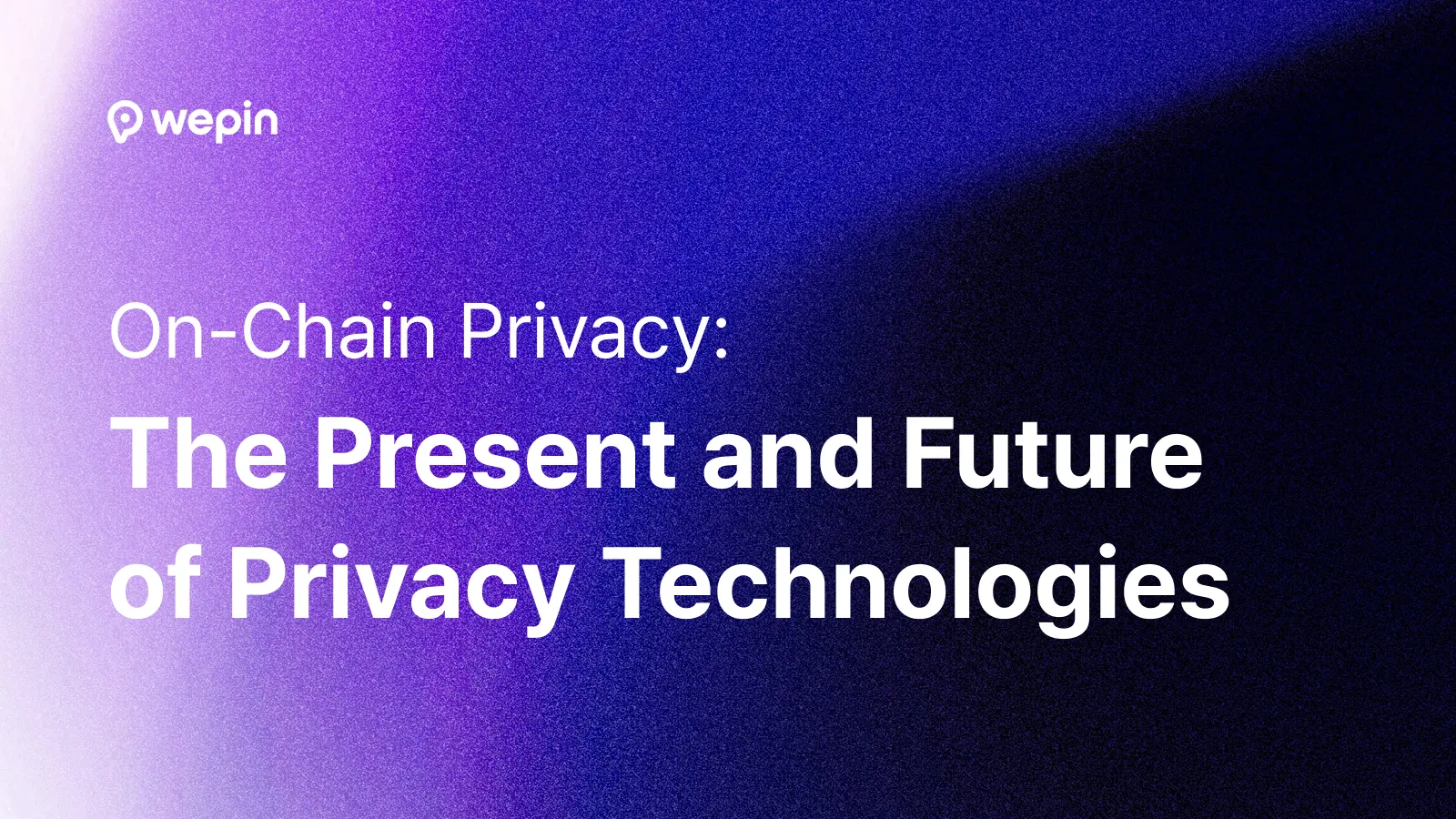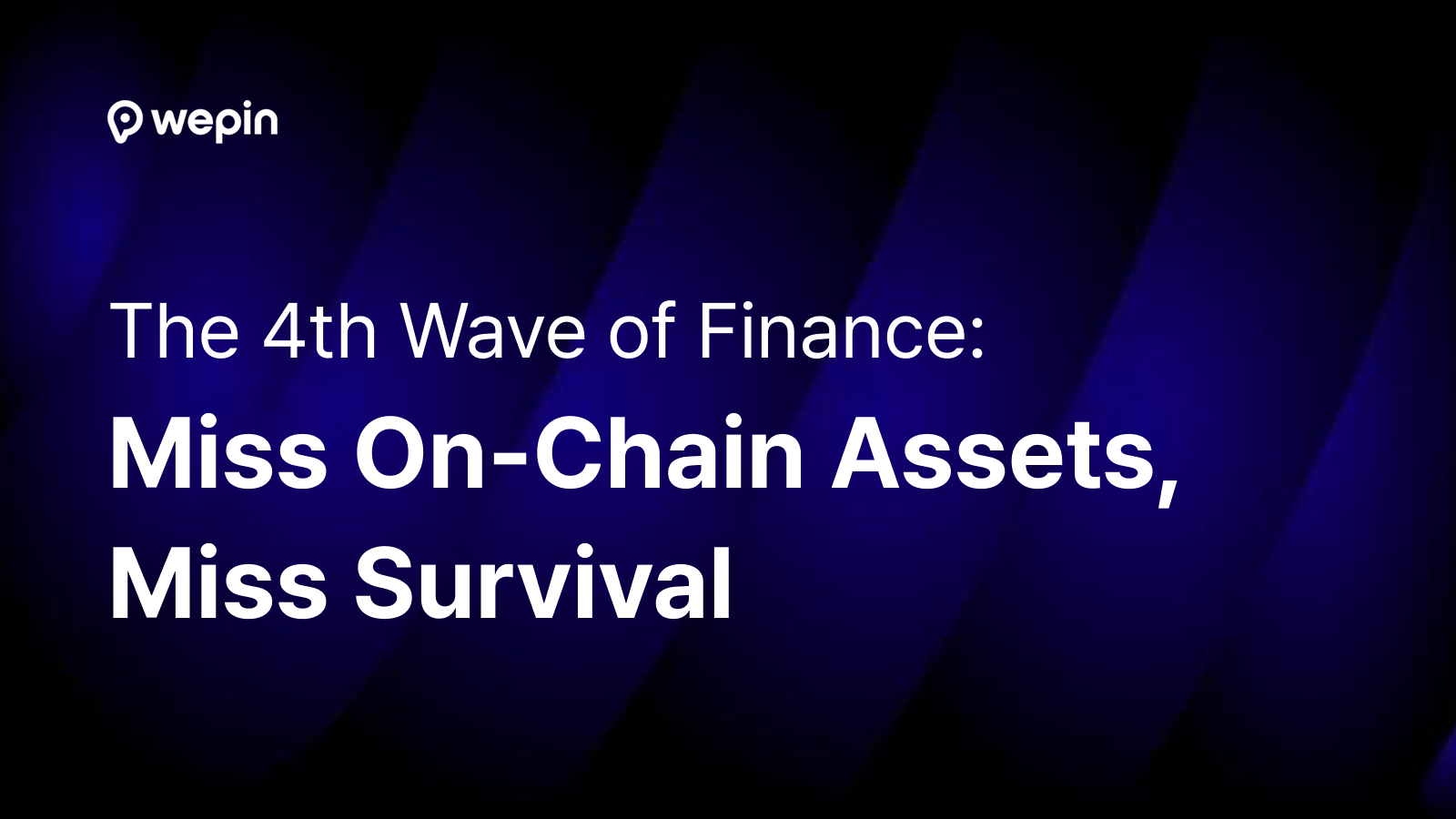Author: Jiyun Kyung, Business Development (https://www.linkedin.com/in/jiyunkyung/)
[TL;DR]
- Blockchain wallets are software/hardware tools that allow secure storage and transfer of cryptocurrencies, providing access to assets through private keys.
- Recently, various types of wallets have emerged based on format, ownership, device usage, private key management method, and enterprise use.
- For enterprises, there are 'custody' services that entrust asset storage to specialized companies and 'Wallet-as-a-Service (WaaS)' that provide wallet solution packages.
- In the future, wallets are expected to go beyond simple asset storage and integrate with Web3 applications and digital identities, serving as a gateway for the convergence of finance and daily life.
In recent years, cryptocurrencies and blockchain technology have been receiving significant attention. However, many people still don't know what blockchain wallets are or what role they play. Today, we aim to explain the concept and types of blockchain wallets in a simple and easy-to-understand manner.
1. What is a Blockchain Wallet? Concept and Explanation of Web3 Wallets
A blockchain wallet is a software or hardware tool that allows you to securely store and transfer cryptocurrencies. Just as we keep cash or credit cards in our wallets, digital assets are stored in blockchain wallets.
Strictly speaking, unlike traditional wallets, blockchain wallets don't store the assets themselves, but rather the keys to access those assets. When you own a specific cryptocurrency, what you actually own is not the cryptocurrency itself, but the "private key" that allows access to it. The private key grants the owner the authority to use that cryptocurrency. As it enables access to cryptocurrencies, it is the most important element that one must manage themselves above all else.
The key configuration and method (public key cryptography or asymmetric encryption) of currently popularized blockchain wallets are as follows. Generally, public keys and private keys are often compared to email addresses and passwords respectively:
- Public Key: A concept similar to the address used when receiving cryptocurrency
- Private Key: A kind of password known only to the wallet owner, used to access the wallet and transfer cryptocurrencies
- Mnemonic Code: A private key expressed in human-readable text, used for easy recording and wallet recovery
2. Classification of Blockchain Wallets by Form and Purpose
In the past, blockchain wallets had no special role other than storing or transferring assets. However, as the blockchain and wallet industry have matured recently, various forms of wallets have been created according to format, ownership, device usage, private key management, and enterprise use.
2.1 By Format
- Hardware Wallets
- Physical devices similar to USB drives, storing cryptocurrency keys offline
- Main advantage is security; being offline, they're not exposed to online hacking or malware
- Software Wallets
- Wallet applications that can be downloaded and installed
- Available in various forms such as desktop, mobile, and online wallets
- Used for regular transactions and convenience, but require security precautions
- Paper Wallets
- Physical documents with printed private/public keys
- Generally generated online but printed and stored offline
- Safe from digital threats due to being offline, but risk physical damage or loss
2.2 By Ownership
- Custodial Wallets
- Managed by third-party institutions that store users' private keys
- Offer convenience and additional services but require a certain level of trust
- Users essentially rely on the institution to manage assets responsibly without breaches
- Non-custodial Wallets
- Users have complete control over private keys, typically stored on personal devices
- Generally considered safer as they don't rely on third-party security levels
- Suitable for users wanting full control over their cryptocurrency assets
2.3 By Device Usage
- Desktop
- Installed on personal computers, providing strong security if the device remains undamaged
- Mobile
- Installed as apps on mobile devices, balancing convenience and security
- Web
- Provided as browser extensions, offering universal accessibility but relying on platform security
- Hardware
- Offers the highest level of security for cryptocurrency holdings when used correctly
2.4 By Online/Offline Management of Private Keys
- Hot Wallets
- Main advantage is immediate transaction capability, always being online
- Versatile, allowing management of multiple cryptocurrencies in one place
- Includes exchange wallets, mobile wallets, desktop wallets, etc.
- Vulnerable to cyber attacks, requiring careful security measures
- When using exchange hot wallets, assets are at risk if there are security vulnerabilities
- Cold Wallets
- Main advantage is offline storage and management of private keys
- Suitable for long-term holding but inconvenient for transactions
- Includes hardware wallets, paper wallets, etc.
- Disadvantage is the risk of physical damage or loss
2.5 Enterprise Wallet Services
- Custody
- Key Features:
- Institutions delegate cryptocurrency private key management and asset storage to specialized custody firms
- Primarily for institutions, but can also be provided to individuals
- Custody firms offer enhanced security features like hardware security, multi-authorization, distributed storage
- Provide comprehensive digital asset management services including asset transfer, DeFi, staking, tax management
- Advantages:
- Institutions reduce security burden by entrusting cryptocurrency storage to experts
- Provide audit functions and transparency for regulatory and compliance adherence
- Customizable custody services according to institution-specific operational policies
- Disadvantages:
- Trusting asset control to third parties may raise trust issues
- Custody costs may increase for larger institutions
- Key Features:
- WaaS (Wallet-as-a-Service)
- Key Features:
- Provide cryptocurrency wallet services divided into backend and frontend
- Companies can launch white-labeled wallet services under their own brand
- WaaS providers handle wallet infrastructure construction, maintenance, updates
- Wallet can be integrated with company systems through various APIs and SDKs
- Advantages:
- Companies can utilize professional wallet platforms early at low cost
- Freely customizable company branding and UX/UI
- Quick launch of cryptocurrency services without wallet management burden
- Receive benefits like wallet function improvements and security updates from WaaS providers
- Disadvantages:
- May become overly dependent on WaaS providers in the long term
- Development and operational costs increase with more customized requirements
- Key Features:
3. The Future of Blockchain Wallets
Blockchain wallets are expected to evolve beyond simple digital asset storage to become a point of convergence between finance and daily life. While initial wallets focused on cryptocurrency storage and transfer functions, future wallets will serve as a gateway to the decentralized economy.
First, wallets will integrate with various Web3 applications such as DeFi, metaverse, and DAOs to provide new financial experiences and opportunities. In a single wallet, users will be able to participate not only in loans, staking, trading, and asset management but also in gaming, social activities, and creative pursuits.
Second, wallets are set to become a key element of distributed identity and self-sovereign identity. Individuals will be able to manage and control all digital assets, beyond cryptocurrencies, including IDs, certificates, and credit records, in their wallets.
Third, with the adoption of professional wallet solutions such as custody and WaaS, the use of blockchain by businesses and institutions is expected to spread further. Companies will use wallets not only for cryptocurrencies and tokens but also for tokenization of physical assets and fair trade.
Thus, future wallets will break down the boundaries between finance and daily life and establish themselves as integrated platforms for the Web3 era. Through this evolution, they will play a role in overcoming the limitations of existing financial systems by providing users with the values of decentralization, transparency, and self-sovereignty.
Lastly, IoTrust, a blockchain wallet specialist company, is providing the 'WEPIN' wallet, a WaaS platform for companies wishing to conduct Web3 business. In the future, they plan to support various forms of Web3 business through the WEPIN wallet.











